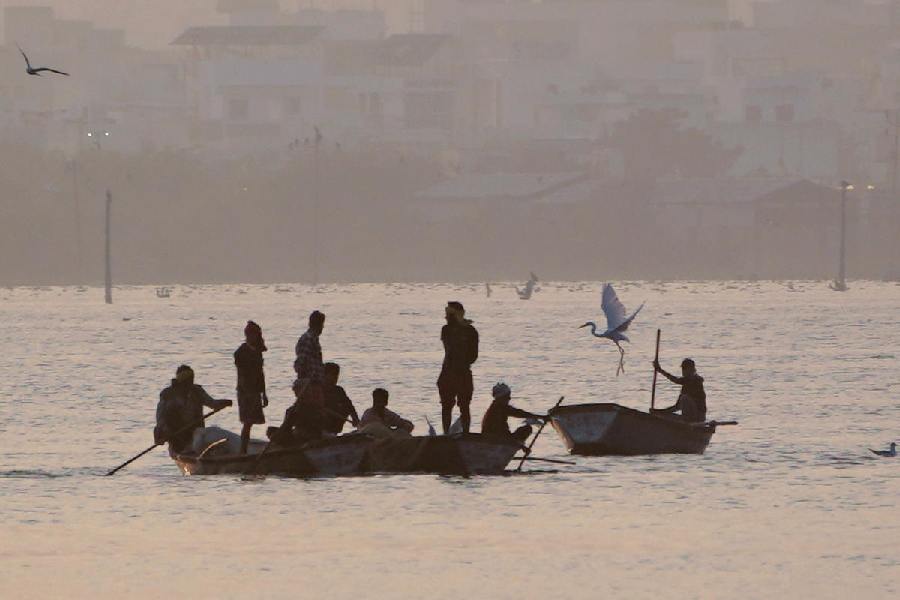Fishermen along the Bengal coast have started a movement against the alleged enrollment of ineligible people for the state government’s Samudra Sathi scheme under which financial assistance is provided to marine fishermen.
The protesters alleged that many individuals not involved in marine fishing had falsely registered themselves as “marine fishermen” to qualify for the scheme.
The Dakshinbanga Matsyajibi Forum, an organisation representing marginal fishermen and leading the movement, called for the proper identification of genuine beneficiaries and the cancellation of registration cards issued to those not engaged in marine fishing.
Members of the organisation have been staging demonstrations at different block offices for over a month, demanding the cancellation of allegedly fraudulent registrations. They submitted petitions to the district administrations of South 24-Parganas and East Midnapore, where the majority of marine fishermen reside.
“The state government must conduct a thorough investigation to identify genuine marine fishermen. Otherwise, the scheme’s objectives will be undermined,” said Milan Das, a marine fisherman and the secretary of the forum.
The Samudra Sathi scheme announced in the state budget in February offers ₹5,000 each per month to marine fishermen during May and June. Marine fishing is banned during the May-June period because of the breeding season.
The scheme aims to benefit approximately 2 lakh fishermen in South 24-Parganas, North 24-Parganas, East Midnapore and Howrah. By April, around 57,000 people had applied for the scheme.
However, members of the forum claim many applicants are not marine fishermen.
“The government has introduced a very beneficial scheme, but its objectives will never be met if genuine applicants are overlooked because of the local administration’s negligence,” said Tapashi Daloi, a fisherwoman.
Sources say many individuals who typically catch fish from ponds, rivers and other local waterbodies were enrolled as “marine fishermen” at the Duare Sarkar camps, despite not having any experience in marine fishing.
“We’ve observed that in many cases, people who have never ventured out into the sea or lack the necessary expertise have registered as marine fishermen. This could place an unnecessary fiscal burden on the government unless proper identification is conducted,” said Milan Das.
He suggested that the government instruct local administration officials, such as block development officers (BDOs) and subdivisional officers (SDOs), to collaborate with fishermen’s organisations to accurately identify beneficiaries and ensure transparency by publishing their names.
An official in the state fisheries department said all applications for fishermen’s registration were properly scrutinised and no significant errors were reported. “However, according to the scheme’s provisions, the names of beneficiaries will be published by local authorities,” the official added.
Many genuine marine fishermen have been unable to enrol their names on the fisheries department’s designated portal because they have not yet received their “registration cards” as marine fishermen, which is a mandatory requirement.
To compound their difficulties, the opportunity to submit new applications for the scheme has been hampered, as the portal has been suspended since June 15.
Adding to their concerns, the government has yet to release any payments to beneficiaries, even after the fishing ban period has ended, causing growing anxiety among marine fishermen.











